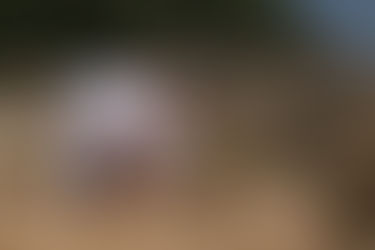Book Recommendations (part 1)
- Nov 30, 2017
- 4 min read
For our next play we have used some books to inspire us and also for the research. We try to be very careful about which book we pick to read, not just because of limited time, but also to hold it together, not wander around to too broad areas. Picking only books that have good research to back them up. Having really benefited from some other people who have shared info about books they have read, so we thought to return the favor here. We use mainly e-reader to read these books, but most are available as audiobooks and of course paperbooks as well.

Here are some books (in not any particular order)
1. The World Is Blue - How Our Fate and the Ocean's Are One
by
Sylvia Earle, Bill McKibben
How we chose it: We have been following Sylvia Earle and her career with the oceans from the days when we did our first volunteer diver project with the Blue Ventures marine scientists. She is the only celebrity that I follow.
What is it about: She is one of the leading marine biologist and explorer. She is 82 at the moment, so she has seen with her own eyes through her research what we have done to the oceans in the past century. She gives insight how we have treated the ocean and that there is "no water, no life, no blue, no green", and that now is the last wake up call.
What we got out of it: Reminder how important the sea is, that there is no single living thing on this planet that isn't dependent on oceans. That alone is enough to fight for the oceans and that there is hope. We are looking for water from another planets, but our oceans are not discovered yet. We forget that water on another planet is not enough to make it habitable, biodiversity in the ocean is. This planet is still the only one for us. Also, very interesting insight to development to small submarines, that she has been part of.
Quote: “Even if you never have the chance to see or touch the ocean, the ocean touches you with every breath you take, every drop of water you drink, every bite you consume. Everyone, everywhere is inextricably connected to and utterly dependent upon the existence of the sea.”
2. What a Fish Knows - The Inner Lives of Our Underwater Cousins by
Jonathan Balcombe
How we chose it: I was looking for a book about the inner lives of sea creatures.
What is it about: It is between being a popular science book on the latest findings on fish social behavior, tool use, memory, sensory abilities, intelligence and a book strongly advocating for a kinder, more empathetic treatment of fish. An underwater exploration that overturns myths about fishes and reveals their complex lives.
What we got out of it: Very interesting facts about fish but also about humans, people judge intelligence by how they themselves think, but there is different kind of intelligence on this planet than ours. Also, because most sea creatures have no facial expressions people think that they have no emotions compared to land animals. These thinking patterns in humans limit the possibilities to understand the sea animals and the richest biodiversity on this planet.
Quote: "So about half of fish species are no more "primitive" than we are. But the descendants of early fishes have been evolving eons longer than their terrestial counterparts, and on these terms fishes are the most higly evolved of all vertebrates.You might be surprised to know that fishes have the genetic machinery to make fingers - something that shows how similar fishes are to modern mammals. They just don't develope fingers, but fins instead, since fins are better for swimming than fingers are."
3. Homo Deus - A Breif History of Tomorrow
by
Yuval Noah Harari
How we chose it: I had read book of this same writer before and liked how he backed up everything he wrote with science, even if he is a bit provocative for my taste at times. So when looking for some books for the play that would deal with possible futures of tomorrows this was a clear choice.
What is it about: Humanities future and how our relationship with animals and smartphones is all connected to what might to become.
What we got out of it: Possible future predictions and ideas where we might end up if we continue our lives as business as usual.
Quote:“Each and every one of us has been born into a given historical reality, ruled by particular norms and values, and managed by a unique economic and political system. We take this reality for granted, thinking it is natural, inevitable and immutable. We forget that our world was created by an accidental chain of events, and that history shaped not only our technology, politics and society, but also our thoughts, fears and dreams. The cold hand of the past emerges from the grave of our ancestors, grips us by the neck and directs our gaze towards a single future. We have felt that grip from the moment we were born, so we assume that it is a natural and inescapable part of who we are. Therefore we seldom try to shake ourselves free, and envision alternative futures.”
I will do this in 2 parts, so next time I write, there are some more interesting books that I recommend.
We enjoy discussing with other people who have read these books or are interested in similar topics. Don't hesitate to write to us or bring up the topic when we meet next time!







Comments